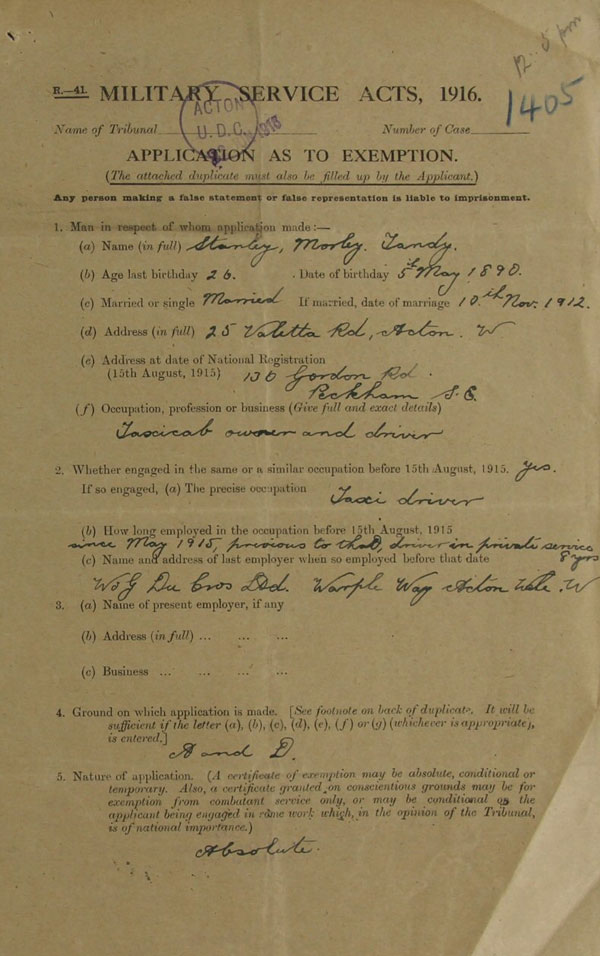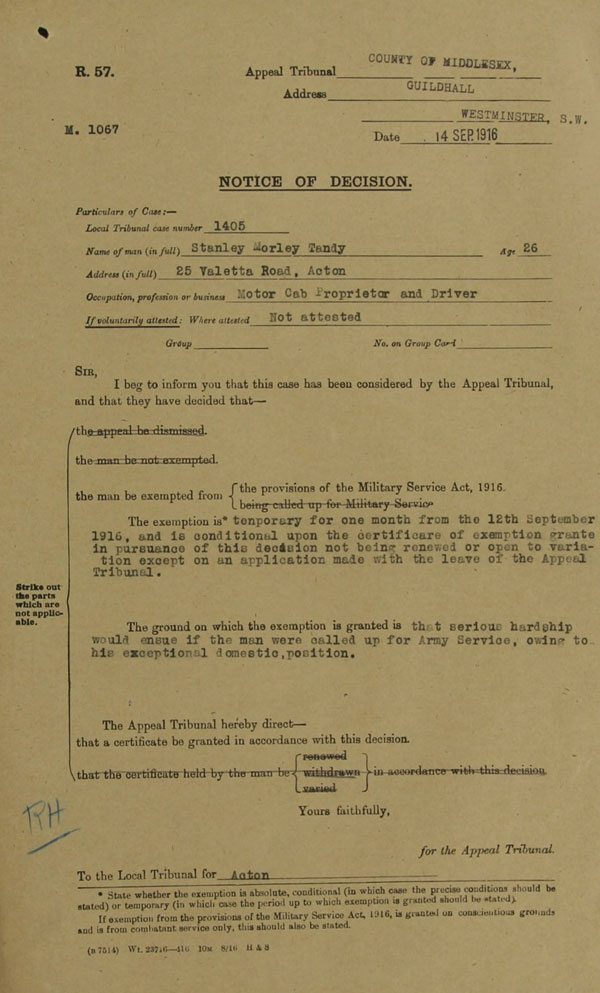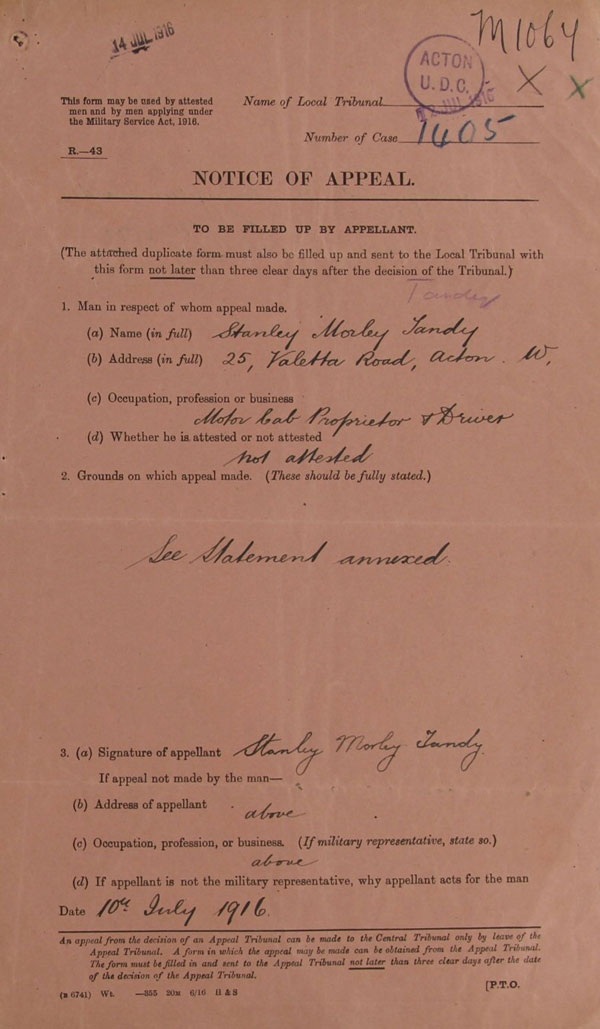How to look for records of... Middlesex military service appeal tribunal 1916-1918
How can I view the records covered in this guide?
How many are online?
- All
What are these records?
These records are the case files of over 8,000 men who were appealing against their conscription into the army during the First World War.
Men applied to local military tribunals for exemption, and could appeal against a local tribunal’s decision to the county appeal tribunal. These records in MH 47 cover the Middlesex Appeal Tribunal only.
There were seven different grounds on which men could apply for exemption including health reasons and financial obligations (see below).
How do I search the records?
You can search the records in Discovery, our catalogue by filling in the form below.
You do not need to complete all the search fields.
Please note, the place names and occupations follow descriptions given in the records, and so may be different from modern descriptions.
You can download documents for free until 2024. The project to make these records available online was funded by the Friends of the National Archives and the Federation of Family History Societies.
What information do the records contain?
These papers contain a wealth of personal information relating to the applicants, their jobs and their families.
Case papers for each individual generally include:
- personal details
- grounds for the application
- the decision of the local tribunal
- the reason for the appeal and sometimes, supporting correspondence and evidence
As many appellants were refused exemption you can potentially find information on men who later fought in the war. The records also provide an insight into the health, work and home lives of a cross section of men resident in Middlesex, making them a valuable resource for social, local, military and family historians.
Grounds for appeal
When it came to making an appeal, applicants could apply for an absolute, conditional or temporary exemption, under one or more of the seven ‘grounds for appeal’. The legislation (Military Service Act 1916 ch. 104) stated them as follows:
- On the ground that it is expedient in the national interests that the man should, instead of being employed in military service, be engaged in other work in which he is habitually engaged
- On the ground that it is expedient in the national interests that the man should, instead of being employed in military service, be engaged in other work which he wishes to be engaged
- If he is being educated or trained for any work, on the ground that it is expedient in the national interests that, instead of being employed in military service, he should continue to be so educated or trained
- On the ground that serious hardship would ensure if the man were called up for Army service, owing to his exceptional financial or business obligations or domestic position
- On the ground of ill-health or infirmity
- On the ground of a conscientious objection to the undertaking of combatant service
- On the ground that the principal and usual occupation of the man is one of those included in the list of occupations certified by Government Departments for exemption
What do the records look like?
Most records contain multiple handwritten or typed pages. Click on the images on the right to see pages from the record of Stanley Morley Tandy (catalogue reference: MH 47/15/5).
Case papers for each individual generally include the following:
An application for exemption:
A notice of decision form, detailing the tribunal’s decision, and conditions of exemption if granted:
A pink notice of appeal, giving personal details, the grounds for appeal, local tribunal summary and the decision of the appeal tribunal:
If you cannot find a Middlesex tribunal case paper, browse the rest of the MH 47 series as it contains letter books and administrative lists which may include references to cases not in the case papers.
Please note, these records are for the Middlesex Appeal Tribunal and the Central Appeal Tribunal only. Most tribunal records were destroyed after the war by government order.
Some incomplete sets of records relating to local tribunals are held at local record offices. Search for ‘military service tribunals’ on our catalogue to find out what records are held elsewhere. Refine your results using the filters. Alternatively, open and read our list of records of First World War Military Service Tribunals for England and Wales held at national and local record offices.
A set for Lothian and Peebles in Scotland was retained, contact the National Records of Scotland for further information.



